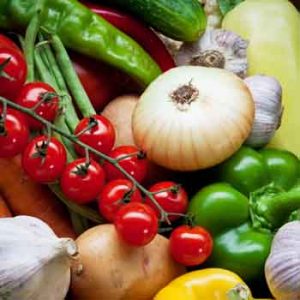
More evidence that low-calorie sweeteners are bad for your health
Studies show that artificial sweeteners can raise the risk of hypertension, metabolic syndrome, type 2 diabetes and heart disease, including stroke.

Natural Health News — Eating three to four servings of vegetables daily is associated with a lower incidence of psychological stress, especially in women, new research reveals.
Published in the British Medical Journal Open, the large study of more than 60,000 Australians aged 45 years and above measured participants’ fruit and vegetable consumption, lifestyle factors and psychological distress at two time points, 2006-08 and 2010.
Psychological distress was measured using an established questionnaire that evaluates general anxiety and depression. Usual fruit and vegetable consumption was assessed using separate short questionnaire.
This revealed that fruit consumption alone had no significant association with a lower incidence of stress, whereas vegetable consumption on its own did. For example
So the ‘additive power’ of fruit to help keep stress at bay, less than expected.
It’s different for girls
» We all know that eating more fruit and vegetables is good for the body, but new data suggests it is also good for our emotional wellbeing.
» A large Australian study conducted over several years found that those who eat 3-4 servings of fruit and veg daily have a 12% lower risk of stress, and for those who ate 5-6 servings daily that number increases to 14%.
» Women benefited more from fruit and veg than men; those who ate 55-7 servings daily had a 23% lower risk of stress.
Breaking the data down further the scientists found however that fruit and vegetables were more protective for women than men. For example:
“This study is among the first to report associations between fruit and vegetable consumption and psychological well-being separately for men and women,” wrote the researchers
“When considered separately in each sex, the association of fruit and vegetable consumption with either the prevalence or incidence of psychological distress was stronger in women, with no clear associations with the incidence of psychological distress in men.”
“It is possible that there may be a true physiological difference between men and women, although a mechanism that could explain this difference remains unclear, or perhaps women more accurately report consumption of fruit and vegetables than men.
Enough is plenty
Eating more fruit and vegetables – greater than 7 daily servings – did not appear to increase psychological wellbeing and there was also a different between the benefits of fruits and vegetables.
“This study shows that moderate daily fruit and vegetable consumption is associated with lower rates of psychological stress,” said Dr Melody Ding of the University of Sydney’s School of Public Health.
“It also reveals that moderate daily vegetable intake alone is linked to a lower incidence of psychological stress. Moderate fruit intake alone appears to confer no significant benefit on people’s psychological stress.”
These new findings are consistent with numerous cross sectional and longitudinal studies showing that fruit and vegetables, together and separately, are linked with a lower risk of depression and higher levels of well-being assessed by several measures of mental health.

Please subscribe me to your newsletter mailing list. I have read the
privacy statement